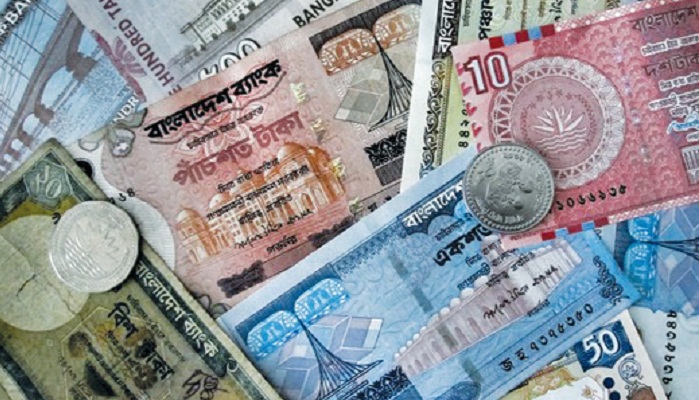Published in Daily Sun on Monday, 3 April 2017
Savings rates take a hit from bad loans
Jannatul Islam

The deposit rates at banks have dropped by almost half in last five years as the banks have to adjust their capital by rescheduling bad loans and giving lower returns to the depositors.
The commercial banks have been reducing the deposit rates to keep balance in the inflow of the cash, which has also caused a fall in the real interest rates.
The interest rate on deposit was around 12-14 percent five years ago. But the rate has come down to single digit to almost 5 percent, which is even lower than the current average inflation rate at 6.53 percent.
The commercial banks have rescheduled their default loans by the end of the last year, giving more funds to the influential defaulters through the rescheduling policy.
“Many borrowers, especially the influential ones and willful defaulters, place unethical requests and create pressure on banks to regularise their bad loans through restructuring without having proper justification to do so,” a Bangladesh Bank official told daily sun.
As a result, the lower income interest-depended account holders became the victims of the banking policy.
Under the large loan restructuring policy, the BB allowed restructuring of Tk 16,410 crore last year.
The rescheduled loans were 4.5 percent of bank’s total outstanding loans of Tk 584,615.49 crore and 5 percent of total unclassified loans of Tk 533,244.27 crore in 2015.
The restructured loans constituted 2.8 percent of total loans outstanding, 3.1 percent of total unclassified loans and 17.4 percent of total stressed advances. The stressed advances included the classified loans, rescheduled and restructured loans.
As of June last year, default loans at banks amounted to Tk 63,365 crore in 2016, which is 10.06 percent of the total outstanding loans.
The BB official said is not only responsibility of a ‘single’ body like the central bank, but also the government, judicial authority, enforcement agencies, political parties, trade associations and the media should work together to restrain bad borrowers from unethical practices.
According to a study report of Bangladesh Institute of Bank Management, the banks on average rescheduled Tk 10,909 crore a year between 2010 and 2016.
In 2015, banks rescheduled Tk 26,308 crore in bad loans, which is 50.1 percent higher than in 2014, as per central bank data.
Besides, under pressure from influential businessmen, the central bank last year offered a special restructuring opportunity for loans upwards of Tk 500 crore. Under the facility, Tk 16,410 crore was restructured in loans. The loans were already rescheduled and restructured several times.
The economist term the situation as a big challenge for the financial inclusion of the mass to the banking.
CPD Distinguish Fellow Prof Mostafizur Rahman said the decreasing real interest rate diverted the account holders from general banking to fixed savings or post office scheme.
“The main cause behind the real interest falling is lack of trust on the capital market. If we have a robust capital market, the general mass could contribute to national productivity directly with their saving. For developing the culture, the authority will have to build a ‘macroeconomy’ management,” Rahman told daily sun on Sunday.
The economy policy expert also termed the ‘rescheduling’ as a bad practice for the national economy, saying, “The rescheduling of non-performing loans is a big challenge for the financial institutions. Sometimes they are force to practice such culture due to pressure from the government,”
Those who have been identified as bad or recalcitrant borrowers and never paid off their loans even after multiple rescheduling facilities should be restricted from taking any fresh loan from the banking system in future, even with other entrepreneurs.
According to rules, if a borrower fails to pay two instalments, the loan would go into default in a conventional manner. The bank would be able to file a case under the 1997 Bankruptcy Act in this connection.
Bangladesh Bank sources said around 20 companies had applied for loan rescheduling, but 11 of those were granted the facility. The central bank approved the rescheduling of loans amounting to about Tk 15,218 crore.

